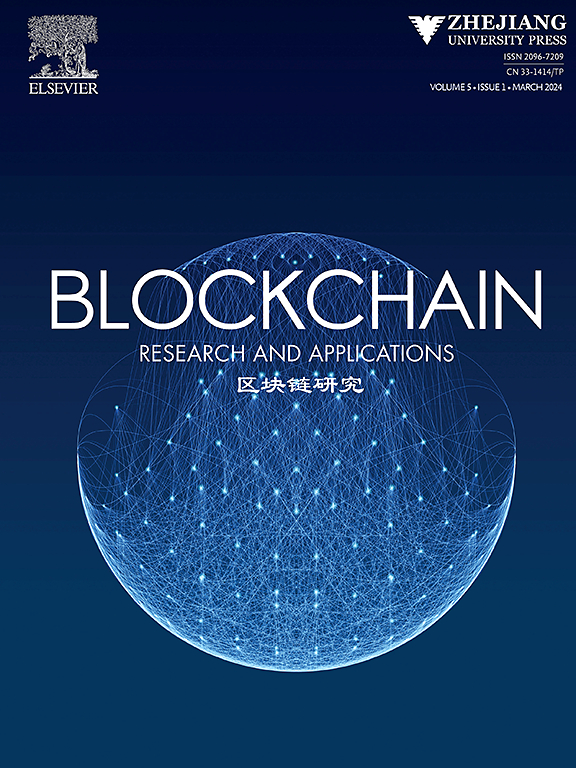D-VRE: From a Jupyter-enabled private research environment to decentralized collaborative research ecosystem
IF 5.6
3区 计算机科学
Q1 COMPUTER SCIENCE, INFORMATION SYSTEMS
引用次数: 0
Abstract
Today, scientific research is increasingly becoming data-centric and compute-intensive, relying on data and models across distributed sources. However, challenges still exist in the traditional cooperation mode, given the high storage and computing costs, geolocation barriers, and local confidentiality regulations. The Jupyter environment has recently emerged and evolved into a vital virtual research environment for scientific computing, which researchers can use to scale computational analyses up to larger datasets and high-performance computing resources. Nevertheless, existing approaches lack robust support of a decentralized cooperation mode to unlock the full potential of decentralized collaborative scientific research, e.g., seamlessly secure data sharing. In this work, we change the basic structure and legacy norms of current research environments via the seamless integration of Jupyter with Ethereum blockchain capabilities. As such, it creates a Decentralized Virtual Research Environment (D-VRE) from private computational notebooks to a decentralized collaborative research ecosystem. We propose a novel architecture for the D-VRE and prototype some essential D-VRE elements for enabling secure data sharing with decentralized identity, user-centric agreement-making, membership, and research asset management. To validate our method, we conduct an experimental study to test all functionalities of D-VRE smart contracts and their gas consumption. In addition, we deploy the D-VRE prototype on a test net of the Ethereum blockchain for demonstration. The feedback from the studies showcases the current prototype's usability, ease of use, and potential, and suggests further improvements.
D-VRE:从木星支持的私人研究环境到分散的合作研究生态系统
如今,科学研究正日益成为以数据为中心和计算密集型的研究,依赖于分布式来源的数据和模型。然而,由于存储和计算成本高昂、地理位置障碍和地方保密规定等原因,传统的合作模式仍然存在挑战。Jupyter 环境最近出现并发展成为科学计算的重要虚拟研究环境,研究人员可以利用它将计算分析扩展到更大的数据集和高性能计算资源。然而,现有的方法缺乏对分散式合作模式的有力支持,无法充分释放分散式合作科学研究的潜力,例如无缝安全数据共享。在这项工作中,我们通过将 Jupyter 与以太坊区块链功能无缝集成,改变了当前研究环境的基本结构和传统规范。因此,它创建了一个去中心化虚拟研究环境(D-VRE),从私人计算笔记本到去中心化协作研究生态系统。我们为 D-VRE 提出了一种新颖的架构,并对一些基本的 D-VRE 元素进行了原型设计,以便通过去中心化身份、以用户为中心的协议制定、成员资格和研究资产管理实现安全的数据共享。为了验证我们的方法,我们进行了一项实验研究,以测试 D-VRE 智能合约的所有功能及其耗气量。此外,我们还在以太坊区块链测试网上部署了 D-VRE 原型,以进行演示。研究反馈展示了当前原型的可用性、易用性和潜力,并提出了进一步改进的建议。
本文章由计算机程序翻译,如有差异,请以英文原文为准。
求助全文
约1分钟内获得全文
求助全文
来源期刊
CiteScore
11.30
自引率
3.60%
发文量
0
期刊介绍:
Blockchain: Research and Applications is an international, peer reviewed journal for researchers, engineers, and practitioners to present the latest advances and innovations in blockchain research. The journal publishes theoretical and applied papers in established and emerging areas of blockchain research to shape the future of blockchain technology.

 求助内容:
求助内容: 应助结果提醒方式:
应助结果提醒方式:


